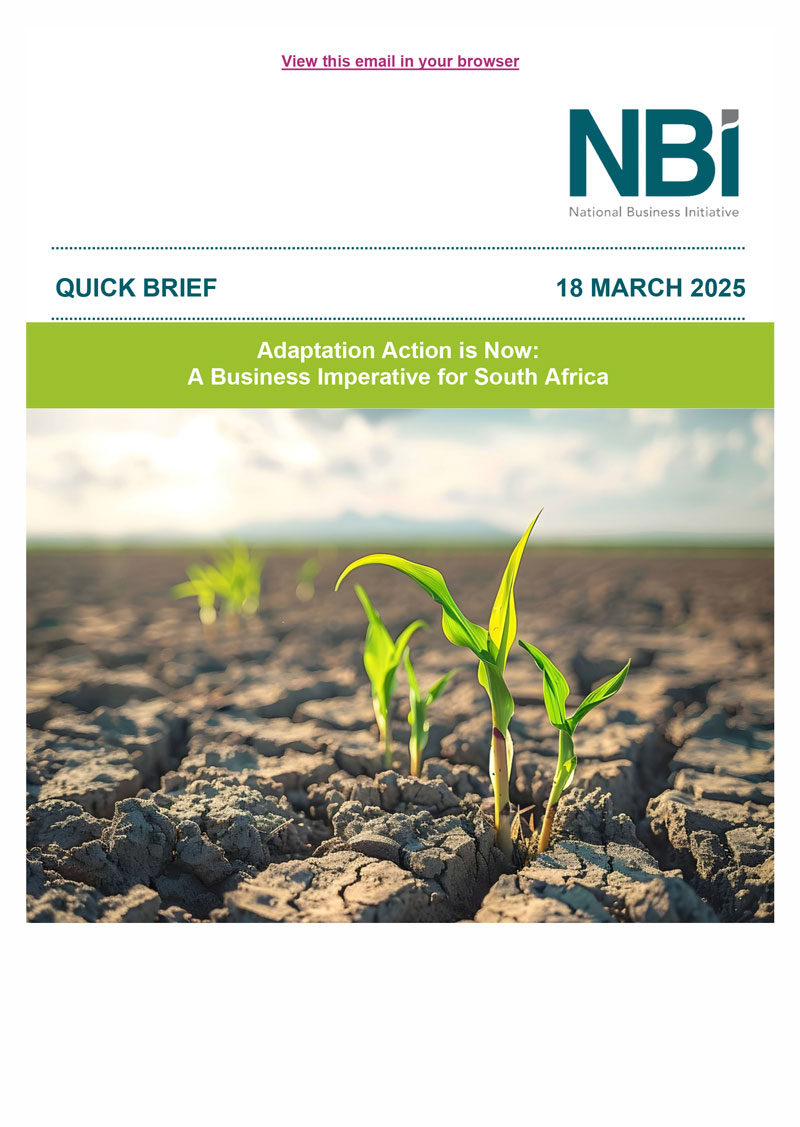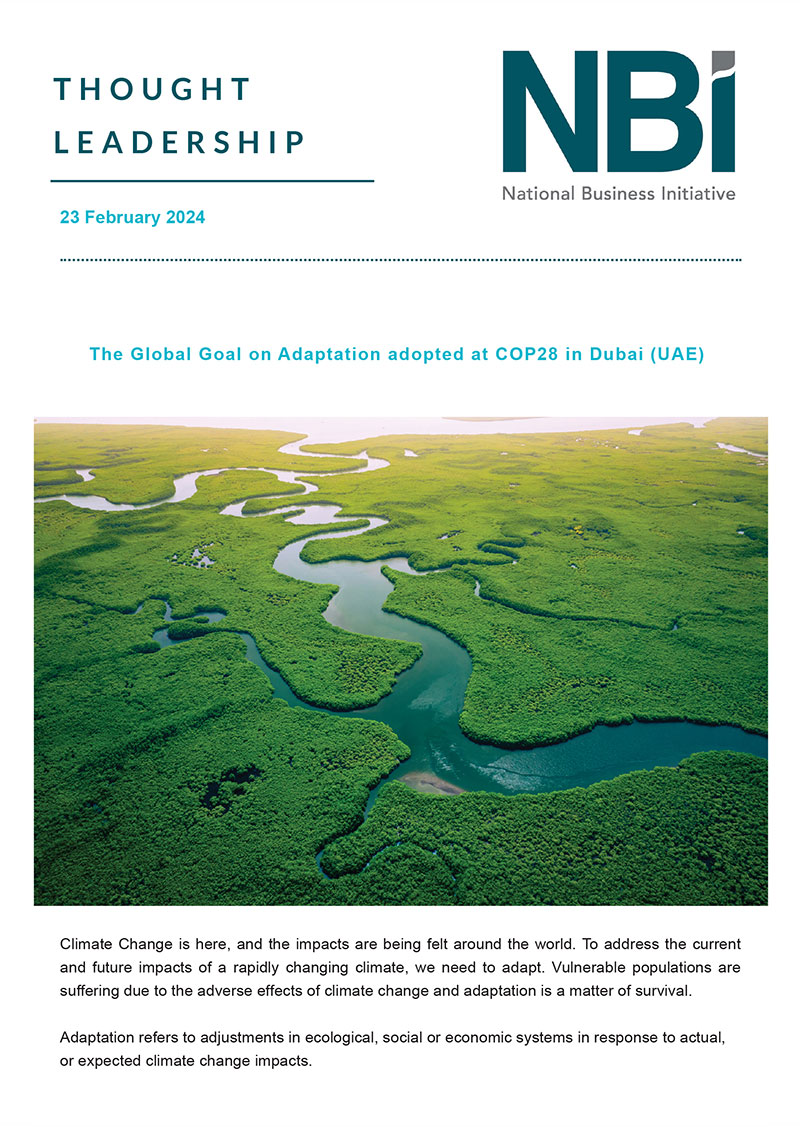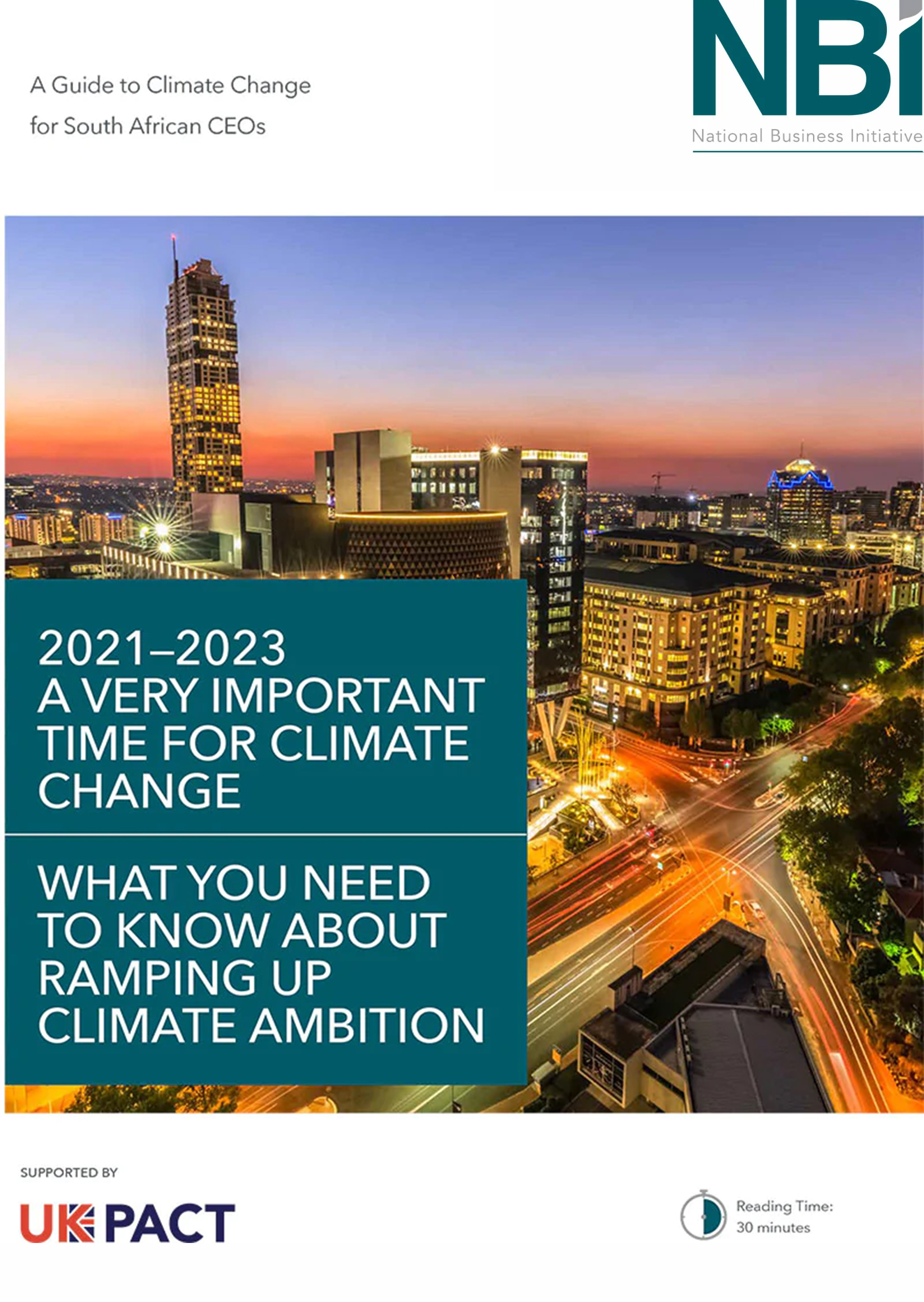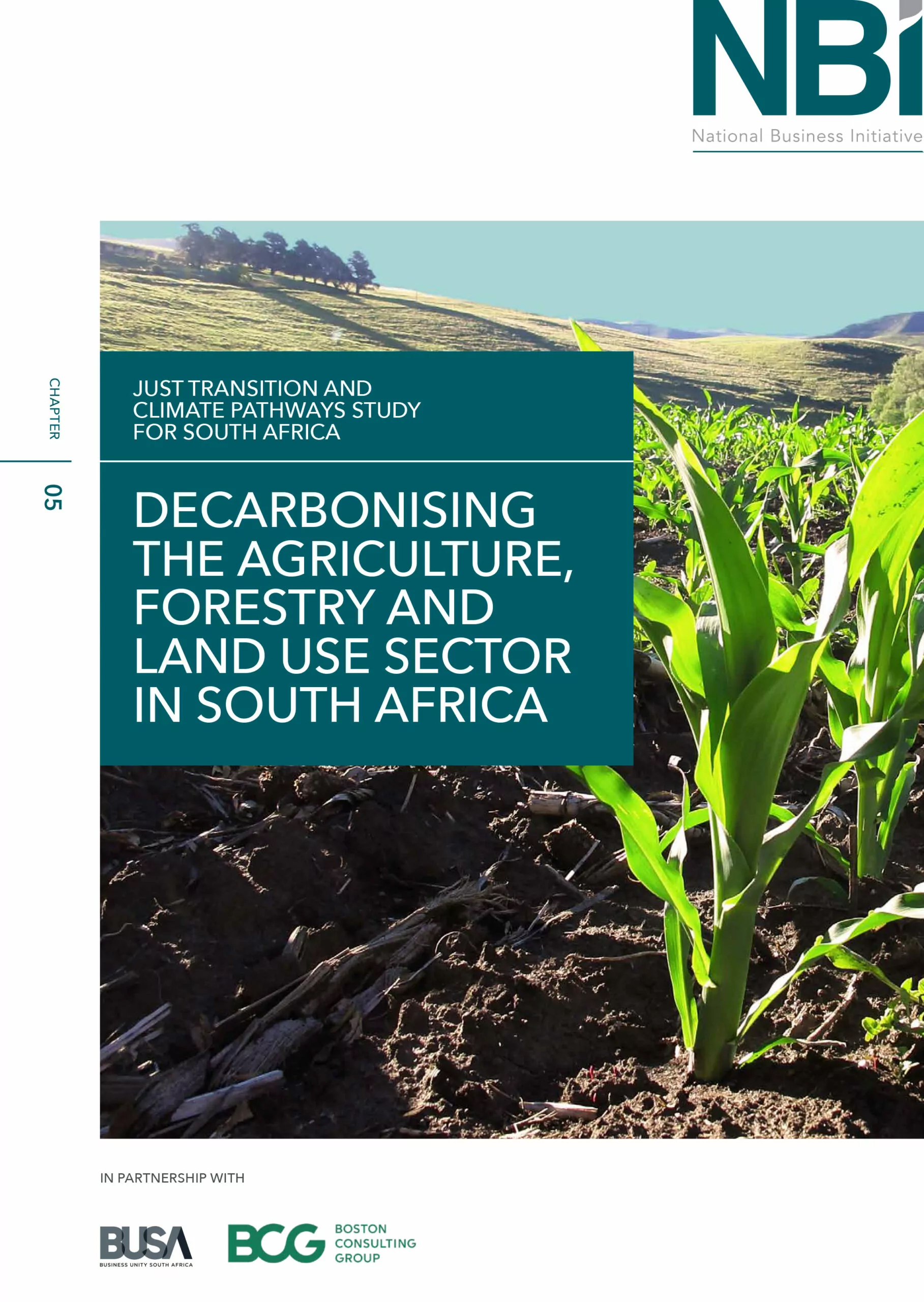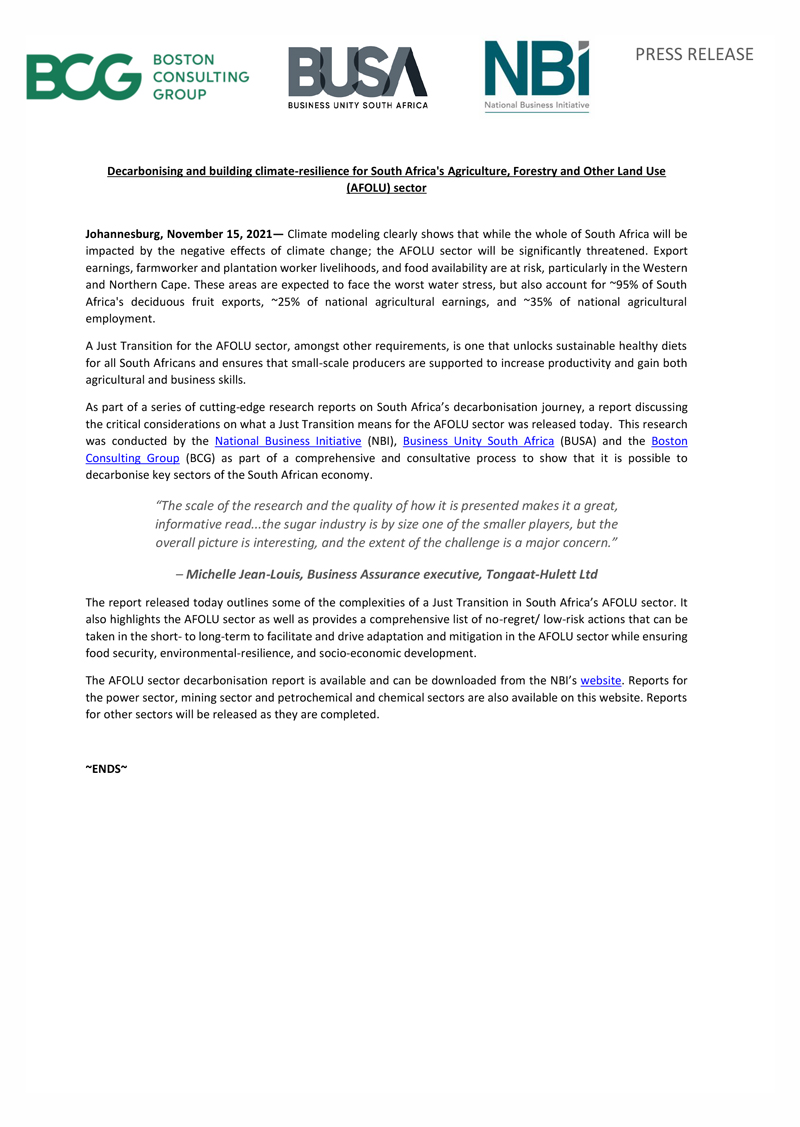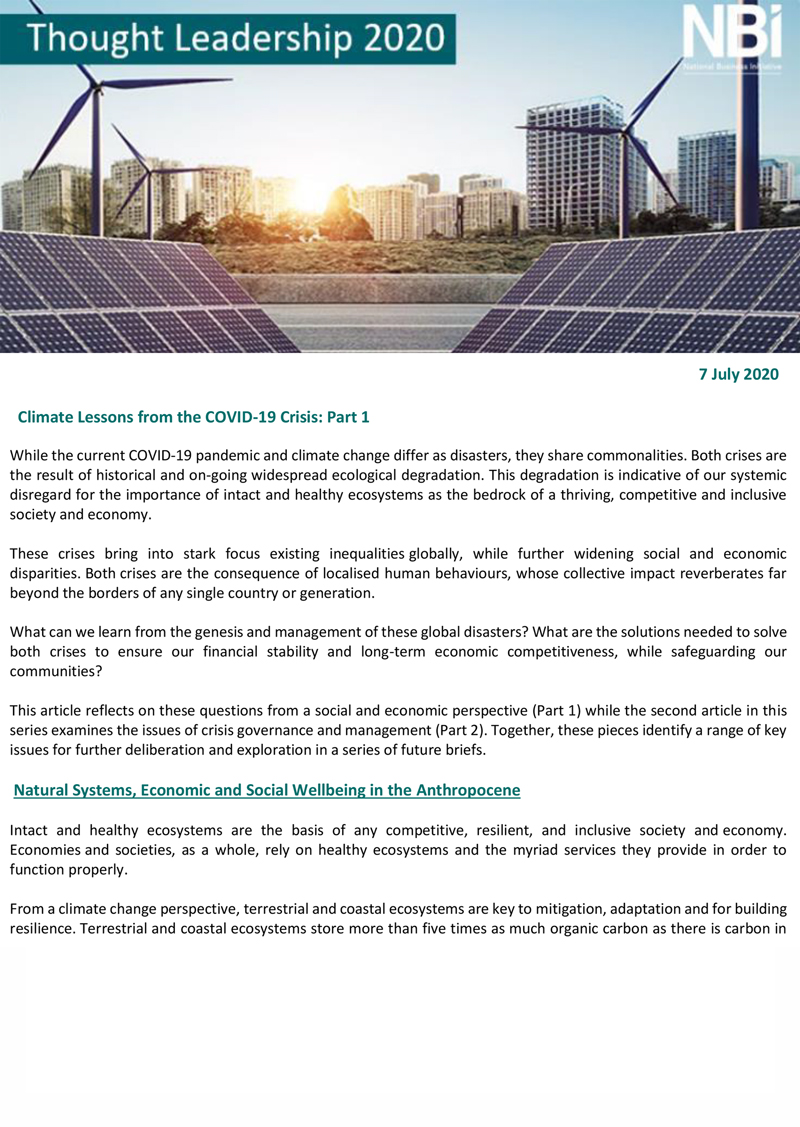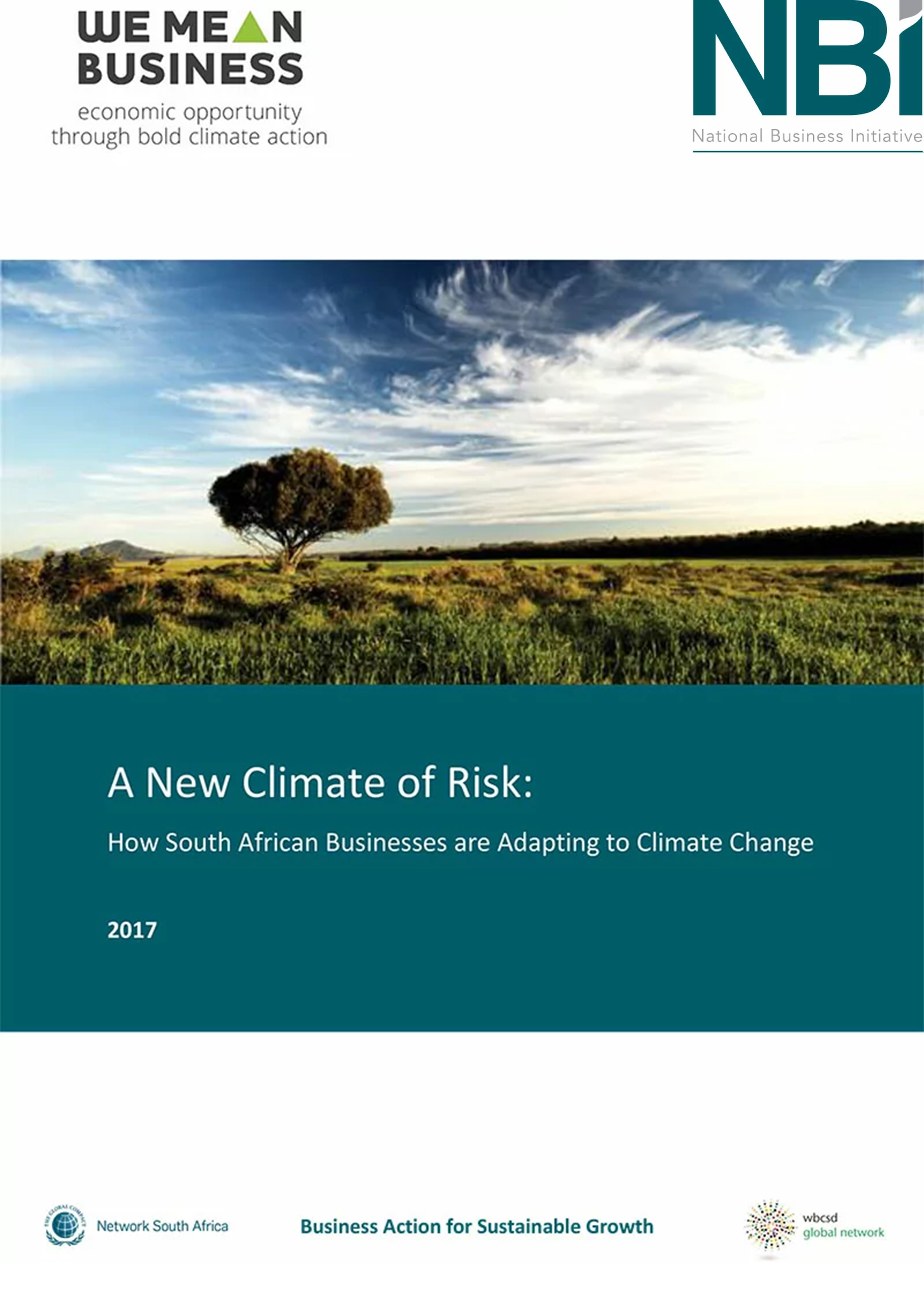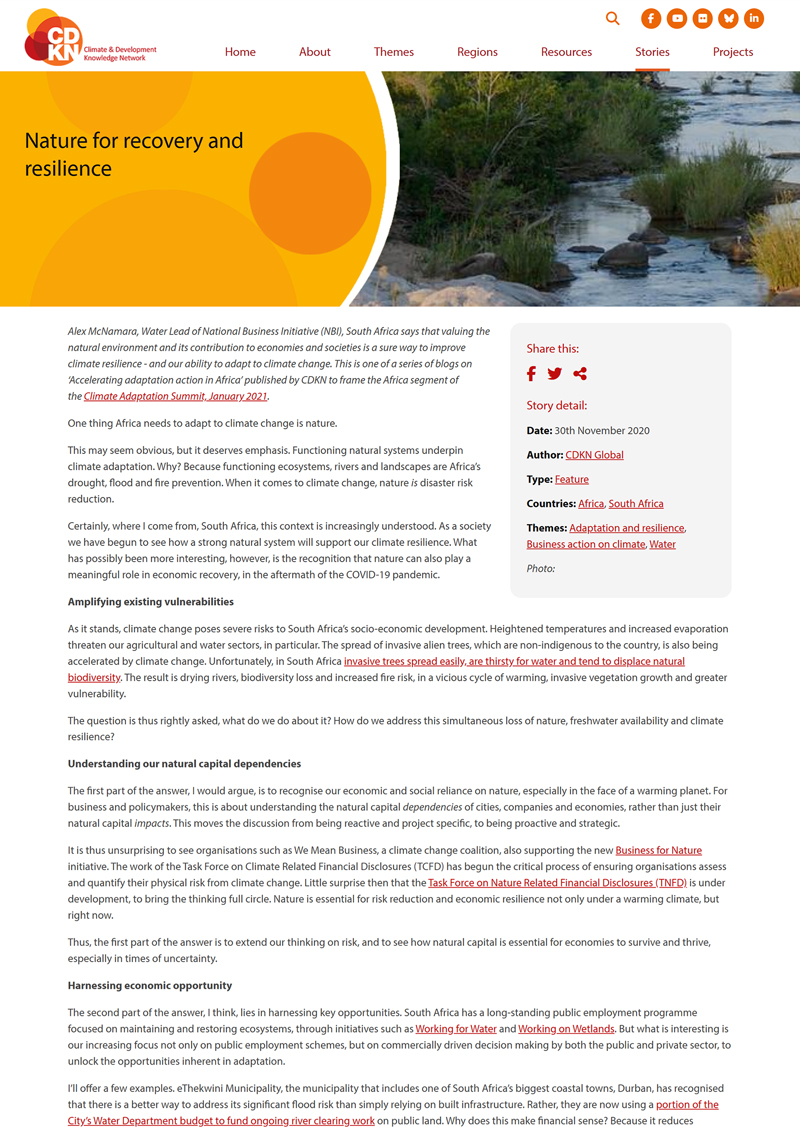Resource Library
Adaptation Action is Now: A Business Imperative for South Africa
The World Meteorological Organisation (WMO) recently confirmed that 2024 was the hottest year on record, with global temperatures reaching 1.55°C above pre-industrial levels. This alarming milestone underscores the urgency of climate adaptation, particularly for South Africa, where the impacts of climate change are not a distant threat but a present reality.
The World Meteorological Organization (WMO): State of the Global Climate 2024
CSP Adaptation Project
As climate risks intensify, it is becoming increasingly urgent for businesses to proactively plan for adaptation – not only to safeguard operations and supply chains, but also to build long-term resilience and competitiveness. We believe that the private sector has a critical role to play in shaping a climate-resilient future.
In response to this need, the NBI are launching a new programme, with sponsorship from the GIZ Climate Support Programme, aimed at strengthening corporate adaptation planning and resilience in South Africa. This initiative builds on our experience in climate action and our trusted relationships with business and will be delivered through our approach of thought leadership, capacity building and collective action.
As part of this work, we are working with the World Business Council for Sustainable Development (WBCSD), of which we are the local partner, to contextualise their newly launched global guidance, Adaptation Planning for Business (June 2025), for the South African business landscape.
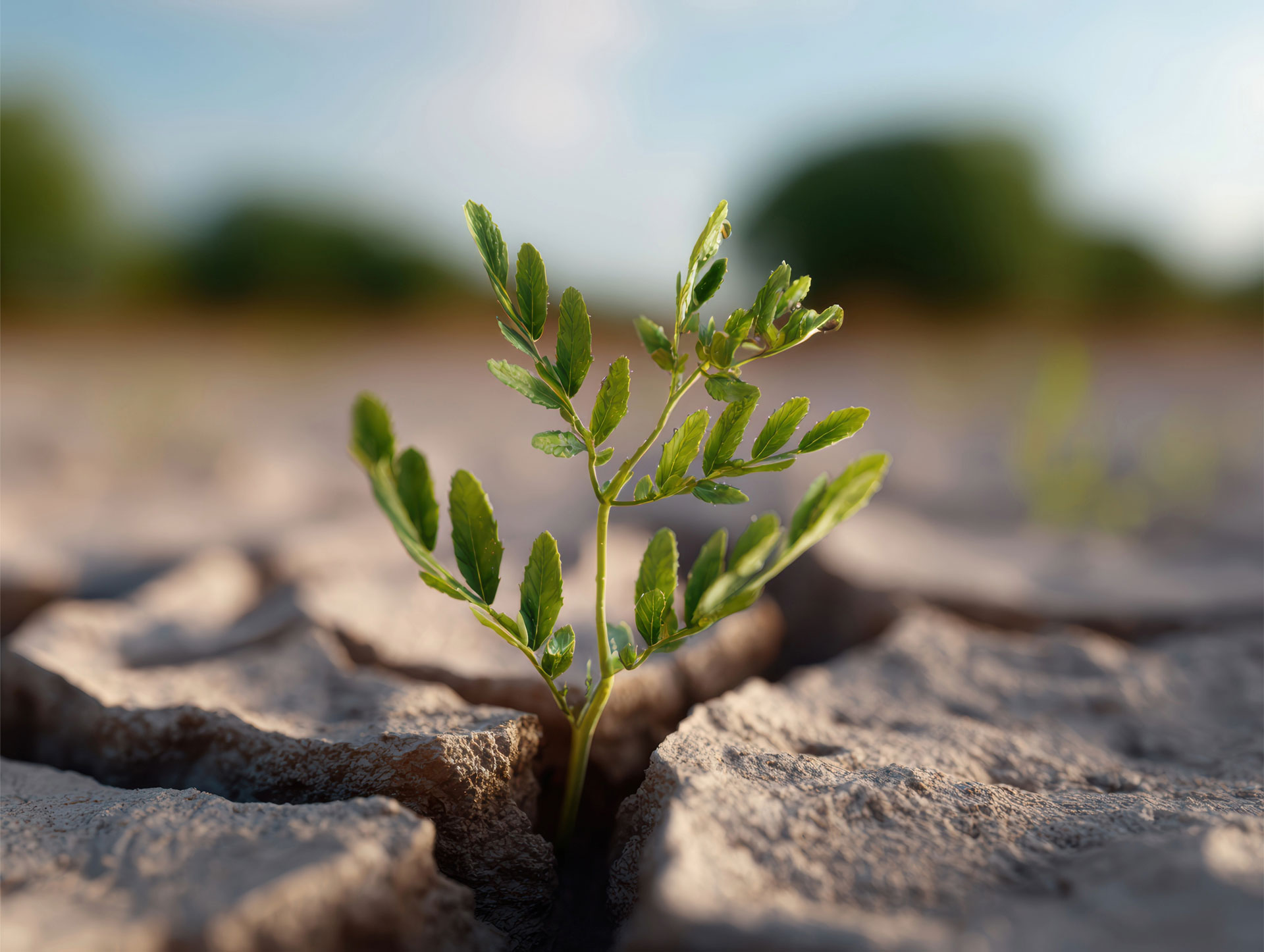
The desired outcomes of this initiative are to:
- Improve business resilience amongst our corporate members in South Africa; and
- Stimulate meaningful adaptation action across sectors.
Key outputs will include:
- Alignment: Understanding how current corporate adaptation practices align with the WBCSD guidance; and
- Capacity building: Supporting companies in developing robust adaptation plans, including exposure to the WBCSD framework.
The project will run over approximately 8.5 to 9 months, and your participation would involve:
- Completing a short survey for baseline insights;
- Engaging in one-on-one sessions with NBI and potentially the WBCSD;
- Participating in a capacity-building gaming session; and
- Attending a peer-to-peer learning site visit.
We would be delighted to have you join us on this action-oriented, capacity-building journey. We believe that your insights and engagement would be invaluable in shaping a resilient business community in South Africa.
The Adaptation Imperative
While global efforts have historically focused on mitigation, adaptation is equally critical, especially for countries like South Africa. Southern Africa is warming at twice the global rate, making us disproportionately vulnerable to climate impacts. From extreme weather events to gradual environmental shifts, the socio-economic consequences are already being felt.
A 2021 study by the Swiss Re Institute warns that if climate change reaches 2.6°C, South Africa could face a potentially devastating GDP decline of up to 17.8% by mid-century. With current policies putting the world on track for 2.7°C warming, the need for adaptation is not just urgent—it’s existential.
Resource library
Several thought leadership articles that explore climate adaptation from different perspectives:
Decarbonising and building climate-resilience for South Africa’s Agriculture, Forestry and Other Land Use
(AFOLU) sector
Event 1: An Update on the Latest Climate Science with Professor Bob Scholes and Professor Francois Engelbrecht
These videos provide a comprehensive update on the status of the latest climate science with two of South Africa’s leading climate scientists:
NBI Adaptation Summary Video
Watch the summary video to understand what “Building an Adaptation Project Pipeline” is all about.
The Impacts of Climate Change:
“Hotter than ever in human experience – not just in terms of the instrumental records. The last time we had temperatures like this was somewhere around 3 million years ago.” ~Professor Bob Scholes (Systems Ecologist at the Global Change Institute- Wits)
Read MoreWhy Southern Africa is a Climate Change Hotspot:
“Across our region [Southern Africa]: ALL locations recorded the warmest summer on record. We need to think seriously, broadly and ambitiously about what adaptation projects we can pursue to reduce vulnerability.” ~ Professor Francois Engelbrecht (Climatologist at the Global Change Institute – Wits)
Read MoreEvent 2: An Introduction to and the State of Climate Finance
“There is plenty of money, just not the right projects.” Find out how climate finance is structured and how to access it in the following series of videos. This shortage of projects is particularly acute in adaptation, and even more so when considering the need for biodiversity-based adaptation.
Adaptation Finance Overview:
“We [SANBI]: are an accredited entity of two global climate funds – the Adaptation Fund and Green Climate Fund. This means we are able to access these funds as a national entity.” ~ Dr. Mandy Barnett (Chief Director- Adaptation Policy & Resourcing at SANBI)
Read MoreGlobal Climate Finance Landscape and Domestic Links:
“There is a lot of money out there, but no one is able to access that money. The question is why aren’t you able to access that money?” ~ Zaheer Fakir (Chief Director-International Relations & Governance at the Department of Forestry, Fisheries and the Environment (DFFE)
Read MoreBridging the Adaptation Finance Gap (Panel Discussion):
“That is one of my key messages: All finance is trying to find a home and to be welcome. You need to figure out how to welcome that finance.” ~ Malango Mughogho (Managing Director- ZeniZeni Sustainable Finance)
Read MoreEvent 4: The Role of Biodiversity and Ecosystem-Based Finance
Innovative eco-system based initiatives not only increase biodiversity, they can often save time, money and reduce environmental impact. Find out about some of South Africa’s most innovative climate change adaptation solutions in this next series of videos.
Welcome and Recap of Events:
“Our ambition has changed over time; we have gone from thinking about a few smaller adaptation projects to really wanted to develop some big $150 million projects. Let us do this right by finding great partnerships and projects that we can at scale and invest wholesale in the country.” ~ Steve Nicholls (Head: Environmental Sustainability at the NBI)
Read MoreOverview of the Ecosystem-based Adaptation in SA:
“In South Africa, EbA has been identified as an important component of the country’s overall climate change adaptation response, as indicated in the National Climate Change Response Plan.” ~Barney Kgope, Department of Environment, Forestry and Fisheries (DEFF).
Read MoreEntry Points for Mainstream Ecosystem Adaptation:
“Despite our significant progression as a country with regard to EbA, we have not really been monitoring the impacts of projects.” ~Dr Tony Knowles, The Cirrus Group
Read MoreEconomic Development that Values Nature:
“This presentation will give you an understanding of how Ecosystem-based adaptation looks on the ground, where we are working to support eco-systems, to support people and to really development sustainable, flourishing green economies.” ~ Julie Levin (Executive Director, Conservation South Africa)
Read MorePrivate Sector Investment in Eco-Restoration:
“Thicket restoration would cost US$150 million over a 5-year period, but over 50 years, this amount is estimated to yield a 10% return on investment.” Jessica Allen (Climate Change & Environmental Consultant, C4 EcoSolutions)
Read MoreFarming for the Future:
“We developed a system to ensure continuous improvement of suppliers through the application of an independently audited system to measure and report on farmer’s performance across a variety of performance areas.” ~Feroz Koor, (Group Head of Sustainability, Woolworths)
Read MoreMarine Eco-Based Solutions:
“There should be an openness to hybrid systems, there are times when you may look at combining nature based and engineered solutions, sometimes that’s the best route to go.” ~Alex Benkenstein, South African Institute of International Affairs (SAIIA)
Read MorePrivate Sector Opportunities for Adaptation (Panel Discussion):
“I am hoping that in the next decade we will start to see some fairly large-scale [adaptation] projects that do incorporate carbon credits” ~Jessica Allen (C4 EcoSolutions)
Read More
Garth Barnes Programme Manager: Water and Biodioversity


